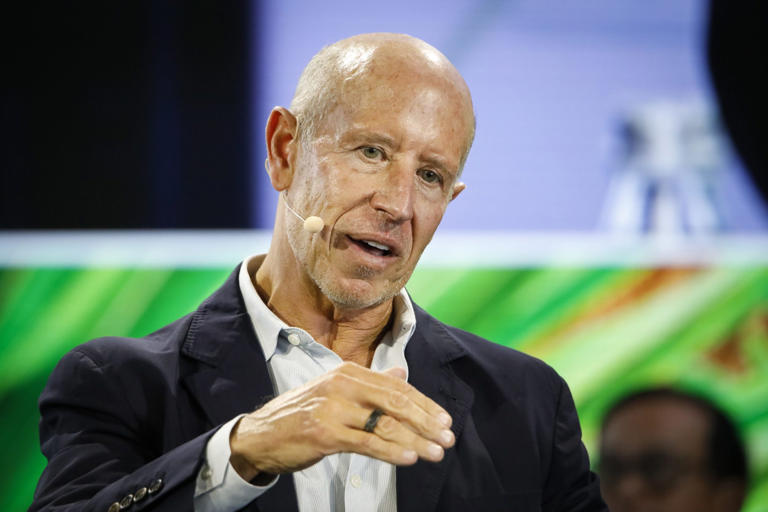Barry Sternlicht, a prominent figure in the real estate industry as the co-founder, chairman, and CEO of Starwood Capital Group, has sounded the alarm regarding the precarious state of regional and community banks across the United States. His apprehension stems from the challenges faced by these institutions amid the current economic landscape characterized by higher interest rates, increasing vacancies, and inflationary pressures. Sternlicht’s concerns point to a potential wave of bank failures, with implications for the broader financial system.
Despite Sternlicht’s dire predictions, the actual number of bank failures in the U.S. remains relatively low. To date, only one bank, Republic First Bank, has succumbed, facing seizure by the Federal Deposit Insurance Corporation (FDIC) due to issues arising from rising interest rates and its exposure to commercial real estate holdings. However, Sternlicht’s warnings about the vulnerability of regional banks have persisted for over two years, reflecting ongoing concerns about the sector’s resilience in the face of economic headwinds.
A key factor driving Sternlicht’s apprehension is the impact of rising interest rates, which he believes are placing significant strain on both the real estate industry and regional banking institutions. Sternlicht contends that the Federal Reserve’s aggressive rate hikes, intended to curb inflation, have instead exacerbated economic challenges, particularly within the real estate sector. He argues that the pace of rate increases has outpaced the ability of businesses and banks to adjust, leading to heightened vulnerabilities.
In response to these challenges, Sternlicht has called for a reassessment of monetary policy, advocating for a reduction in interest rates to alleviate pressure on the real estate market and support regional banks. He argues that lower rates could enhance the value of banks’ assets, providing much-needed relief amidst mounting loan losses and economic uncertainty. Additionally, Sternlicht emphasizes the critical role of regional banks in supporting small businesses and farms, underscoring their importance to the broader economy.
While Sternlicht’s warnings may appear alarming, they echo concerns expressed by other industry leaders and analysts, who have highlighted the risks posed by underwater real estate loans and the potential for widespread bank consolidation or failure. These concerns reflect broader anxieties about the resilience of the financial system in the face of evolving economic conditions and regulatory challenges.
Despite the current economic headwinds, Sternlicht remains cautiously optimistic that Federal Reserve Chair Jerome Powell will eventually take steps to lower interest rates, thereby mitigating the adverse effects on the real estate market and regional banks. He believes that Powell is beginning to recognize the unintended consequences of aggressive rate hikes and may seek to recalibrate monetary policy to address inflationary pressures and support economic stability.
In conclusion, Sternlicht’s warnings underscore the complex interplay between monetary policy, economic conditions, and financial stability. While his predictions may heighten concerns about the health of regional banks, they also serve as a call to action for policymakers and industry stakeholders to address systemic vulnerabilities and safeguard the integrity of the financial system. As economic uncertainties persist, proactive measures will be essential to navigate the challenges ahead and foster a resilient and sustainable banking sector.
